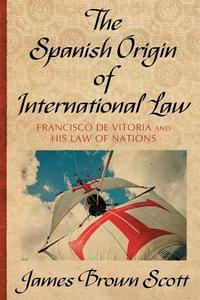
The Spanish Origin of International Law
- Editore:
LAWBOOK EXCHANGE LTD
- EAN:
9781584771104
- ISBN:
1584771100
- Pagine:
- 484
- Formato:
- Hardback
- Lingua:
- Inglese
Descrizione The Spanish Origin of International Law
Study of Vitoria by a leading figure in twentieth-century international law. Originally published: Oxford: Clarendon Press, 1934. 19a, 288, [6], clviii pp. Francisco de Vitoria [c.1483-1546] was a founder of international law. Scott holds that Vitoria's doctrines, popularized in his important Reflectiones, De Indis Noviter Inventis and De Jure Belli (the text of these are included in the appendix), are in fact the first works to address the law of nations, which was to become the international law of Christendom and the world at large. Vitoria held that pagans were entitled to freedom and property, declared slavery to be unsound and upheld the rights of Indians. He also questioned the legitimacy of Spain's recent conquest of the New World. This was the source of his thesis that the community of nations transcends Christendom. One of the greatest figures in modern international law, James Brown Scott [1866-1943] was the guiding force behind the American Society of International Law, and was editor-in-chief of the American Journal of International Law. He played a key role in several important diplomatic conferences and was secretary of the Carnegie Endowment for International Peace. His books include The American Institute of International Law: Its Declaration of the Rights and Duties of Nations (1916), The Catholic Conception of International Law (1934) and Law, The State and the International Community (1939).



